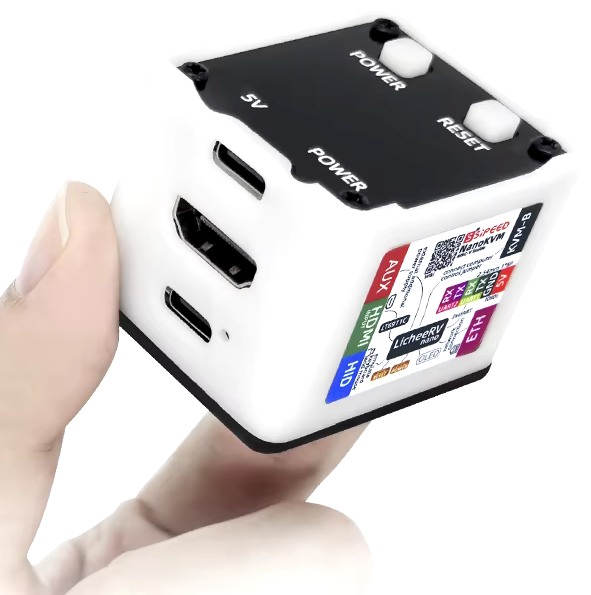Extreme Intel/AMD CPU and APU Underclocking and Undervolting For Maximum Battery Life Using Universal x86 Tuning Utility
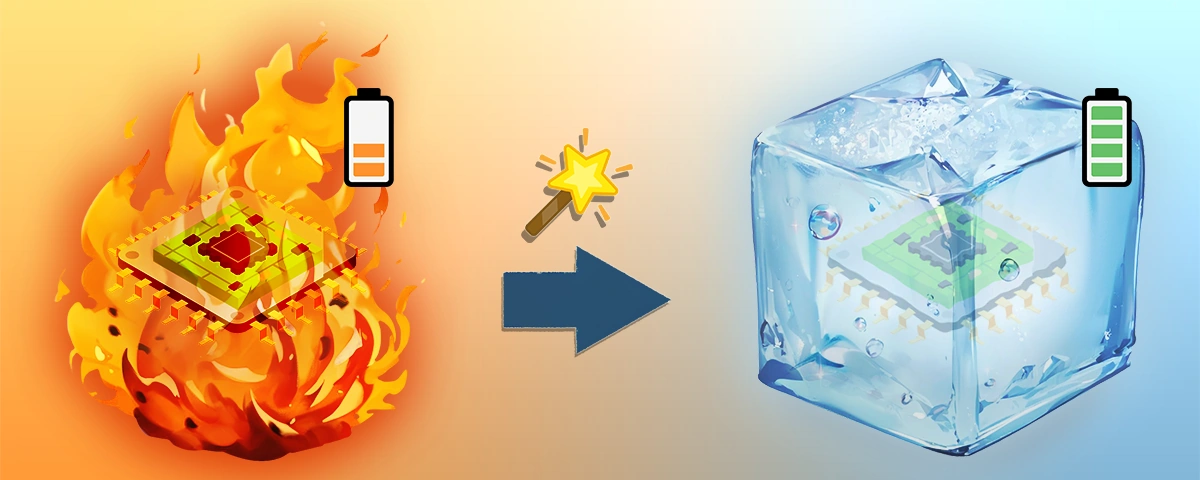
YouTube channel Just Josh released a video review of Lenovo Yoga Slim 7i 14 laptop powered by an Intel Ultra 7 258V CPU (or an APU, strictly speaking).
Terribly-named Intel chip model aside, the laptop was able to deliver jaw-dropping battery life in the video playback test:
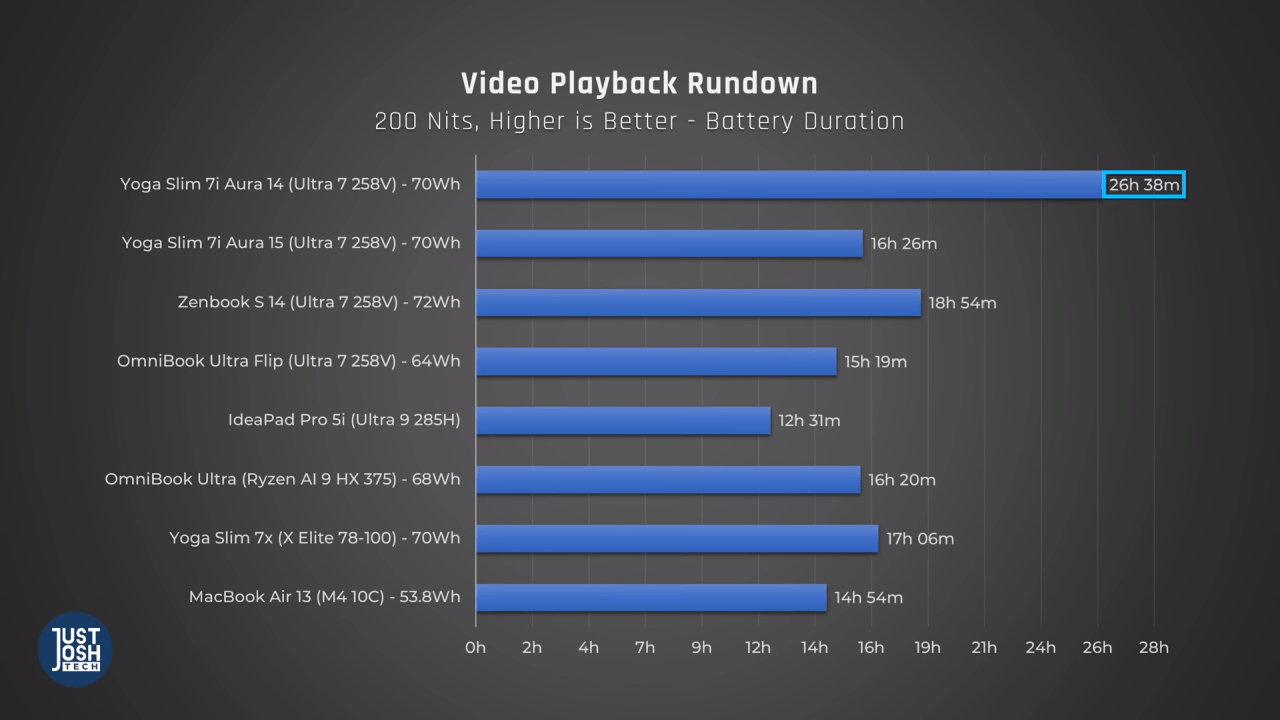
These are record-breaking results that are even better than those of ARM-based Apple laptops, let alone other x86-based Windows machines! When I showed this review to a good friend of mine, we had quite a debate, since he couldn't or wouldn't believe those results. Afterwards, I decided to compare Yoga Slim 7i to my own Lenovo IdeaPad 5 Pro 14ACN6 laptop in terms of battery life in such a use scenario.
My 14ACN6 (released Feb, 2022) features an 8-core AMD 5800U CPU, 16GB of DDR4 RAM and a 56Wh battery. In conditions similar to those in the review (power saving mode, looping 1080p H.264-encoded H/W-accelerated video playback at 200 nits of brightness) The laptop delivered 7h 40m of battery life.
So about 8 hours for a brand new unit, considering the 96.3% battery health of mine. But then, the review model of Lenovo Yoga Slim 7i 14 had a fairly beefy 70Wh battery. To compare apples to apples, I'll simply add 25% to my test results, so that with the same battery the best theoretical case scenario for this laptop would allow for about 10 hours running off the grid. Certainly a far cry from the 7i's results…
How to Survive Without a Numpad. Alt ♫ Code ☼ Emulation ♥ on Tenkeyless (TKL) and Laptop Keyboards With Autohotkey, the "Unix Way"

I recently obtained an extremely hard to find retro keyboard I always wanted.
It's one of those models with tactile mechanical switches, but not the deafeningly loud buckling spring ones. It both looks majestic and can actually be used on a modern PC thanks to the USB 1.0 interface.
Take a look. It's glorious!
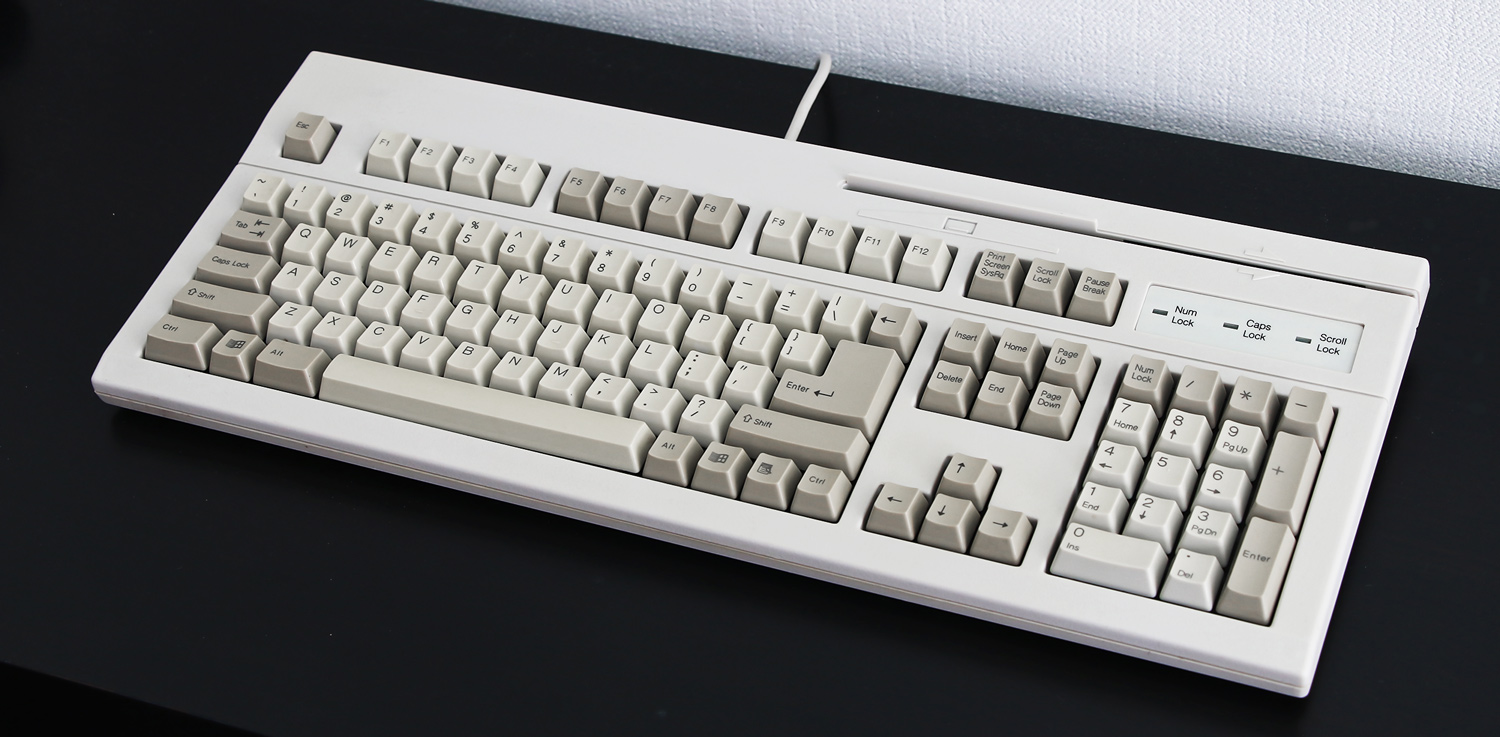
Typing on it brings back memories of the old-school terminal computers, and the time when I typed my first words on a similar mechanical, solidly built keyboard. Which might explain why I have come to love expressing my thoughts through writing so much.
Ahem, anyway… There is just one tiny little issue with this keyboard. Coming from the early 2000's it completely lacks n-key rollover. Which makes it entirely unsuitable for gaming or any other applications where you're expected to press and/or hold several non-modifier keys simultaneously.
Think "WASD" 1st person shooter controls. That's not possible on a "retro" keyboard. And neither is something like this:
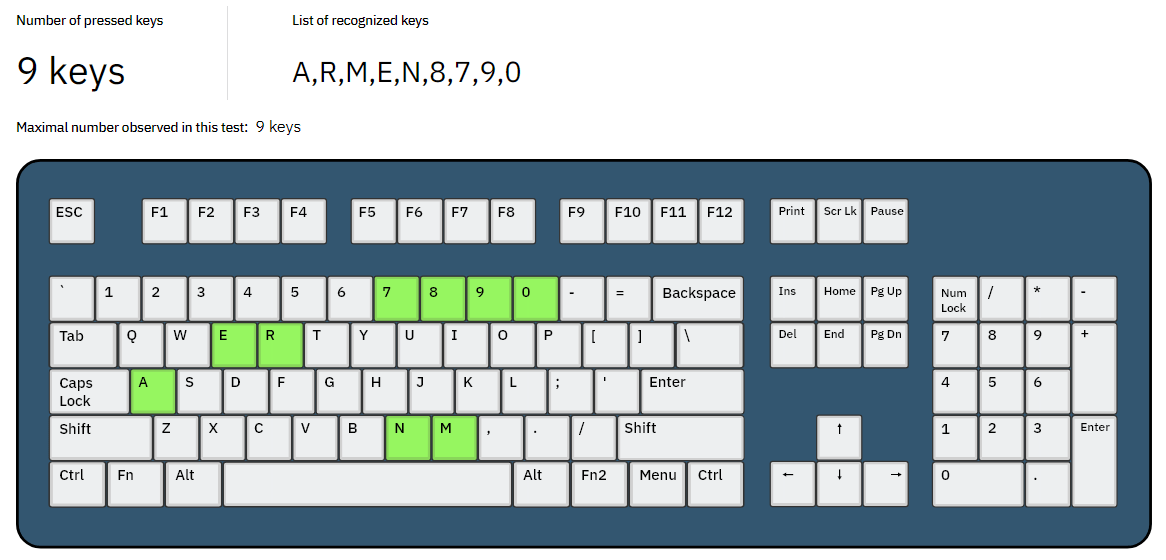
BTW, you can test your keyboard's rollover capabilities here.
I don't game much on my main PC, instead usually going for either one of my consoles or a fairly powerful guest-room laptop, which are all connected to a projector. So it's not really an issue. But I would like to have an option to make use of my monstrous RTX 4080 not just for rendering, video editing/encoding and running CUDA-accelerated apps, but for gaming also.
Consequently, I decided to get one of those compact wireless/wired "gaming" mechanical keyboards that are all the rage right now.
My Little Keyboards, My Little Keyboards...
After an extensive research, initial confusion and even shock, I landed on these two cuties. They both look so retro and slick, that I had to get both. Don't you judge me.
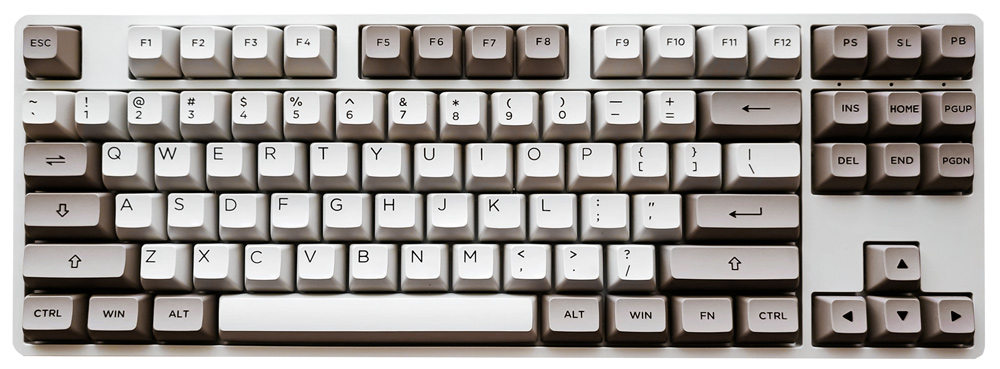
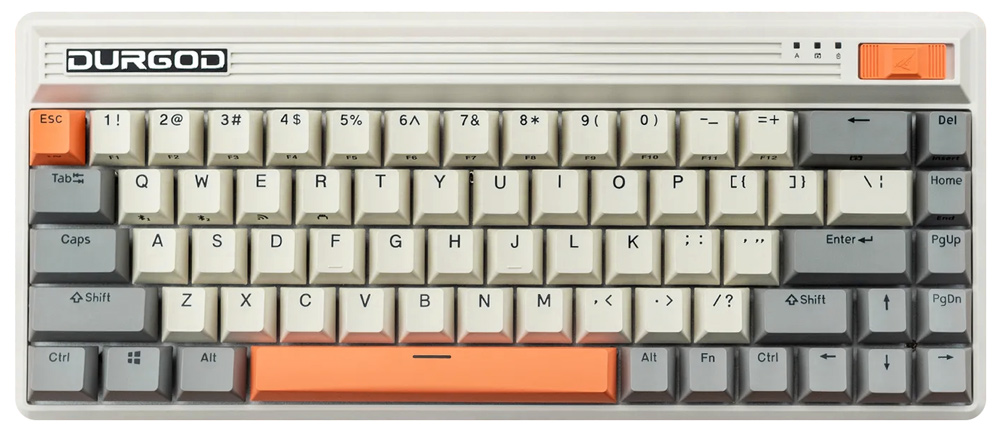
And if you look closely enough, you might notice that they both lack a numpad!
Deep Dive Into NanoKVM Security Issues And Why You Should Consider Building or Buying PiKVM Instead
At the end of 2024, I heard some news about an incoming wave of cheap and compact IP-KVM devices to control your computers or any other hardware that outputs video over HDMI and accepts input over USB.
Basically an alternative to integrated KVM-over-IP remote control hardware and software solutions: iLO (HP), iDRAC (Dell), or IPMI (SuperMicro). The problem is that these devices are typically embedded into large, expensive servers. And external commercial options are often very expensive, slow, and bulky. They also in many cases require proprietary browser plug-ins or applets to be installed.
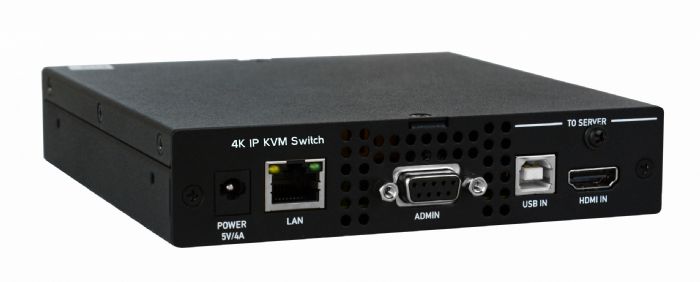
If you're familiar with this concept and are aware of the key differences between a hardware IP-KVM and software remote desktop solutions like VNC, TeamViewer and others, you might also be on the lookout for a low-cost device like this.
PiKVM To The Rescue
No wonder that such projects as PiKVM are a godsend for those of us who have server(s) at home running 24/7, and would like to access and control said machines remotely in cases where the server has crashed and doesn't boot, or needs to be hard-reset by "holding a button", or anything in between. PiKVM was originally created as a pet project to develop a DIY KVM over IP. A lot has changed since then!
Nowadays you can either buy a ready-made PiKVM device…
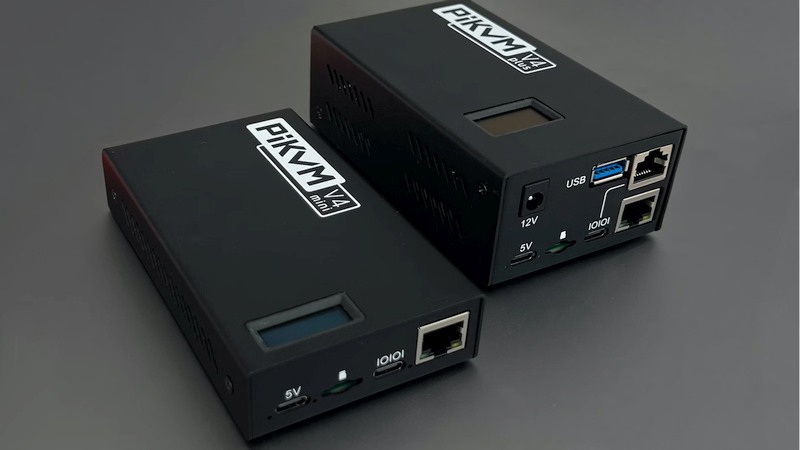
…or still follow the DIY way and build one of your own (more on that below).
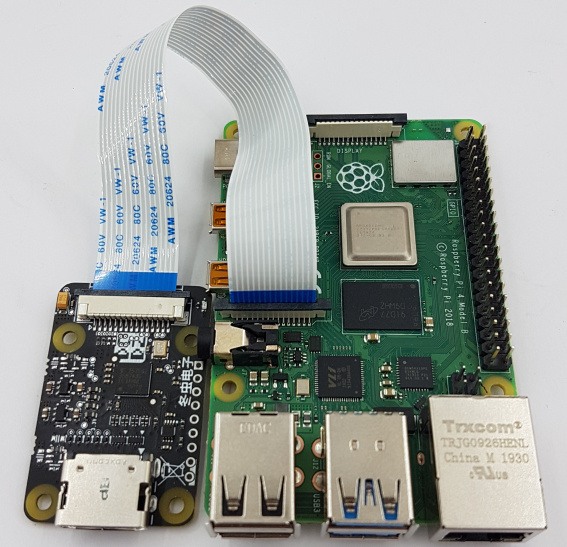
PiKVM were among the first ones to offer a complete open-sourced similarly named software solution and a DIY guide on how to build your own affordable KVM over IP device that utilizes a modern, secure, linux-based software stack.
But now there are new kids on the block! Are they any good?
The Tide Turns: Unity Abandons the Controversial Runtime Fee
Great news to all Unity devs out there!
Yesterday, Unity published a new post on their blog titled "A message to our community: Unity is canceling the Runtime Fee."
You have to read it, to believe it. After what felt like a catastrophic fiasco of a business model change — initially relying on an install count metric, later revised and replaced with a "runtime" metric that would count the number of Unity-made app instances running on client machines — this change of direction both fills me with delight and sends my mind racing.
Why?
I'm sure you're well aware of just how unpopular their previous decision was. So much so, that many developers announced they'd be migrating to other engines like Godot or Unreal. What's even worse for Unity — many devs actually delivered on that promise! This is especially telling, considering how buggy, incomplete, and limited Godot is compared to Unity, particularly with its build platform support. Not to mention how complicated Unreal Engine development can be due to its reliance on C++, making it less small-team friendly.
Still, I can't help but wonder why the whole Unity team including their sizeable board of directors went with a terribly and obviously flawed and under-cooked proposal from John Riccitiello, and just... Implemented it. I understand that Unity is a business with business goals, but such drastic changes to the Terms of Service should be announced well in advance, such as to not shock and drive your existing users away.
It's not my business to try and estimate how many clients Unity lost during this period of turbulence, but I absolutely welcome the return to the original business model. I'm not a fan of Unity making their 6th version require phoning home at least once every 30 days, but you're free to stick with your previous Unity LTS branch if you're content with its ToS. At least until it reaches its EOS, after which you'll have to upgrade. Other than that — good job, Unity, with getting rid of John Riccitiello, and re-evaluating your strategy moving forward.
Here's a backup of the original blog post in case Unity decides to quietly change it sometime in the future:
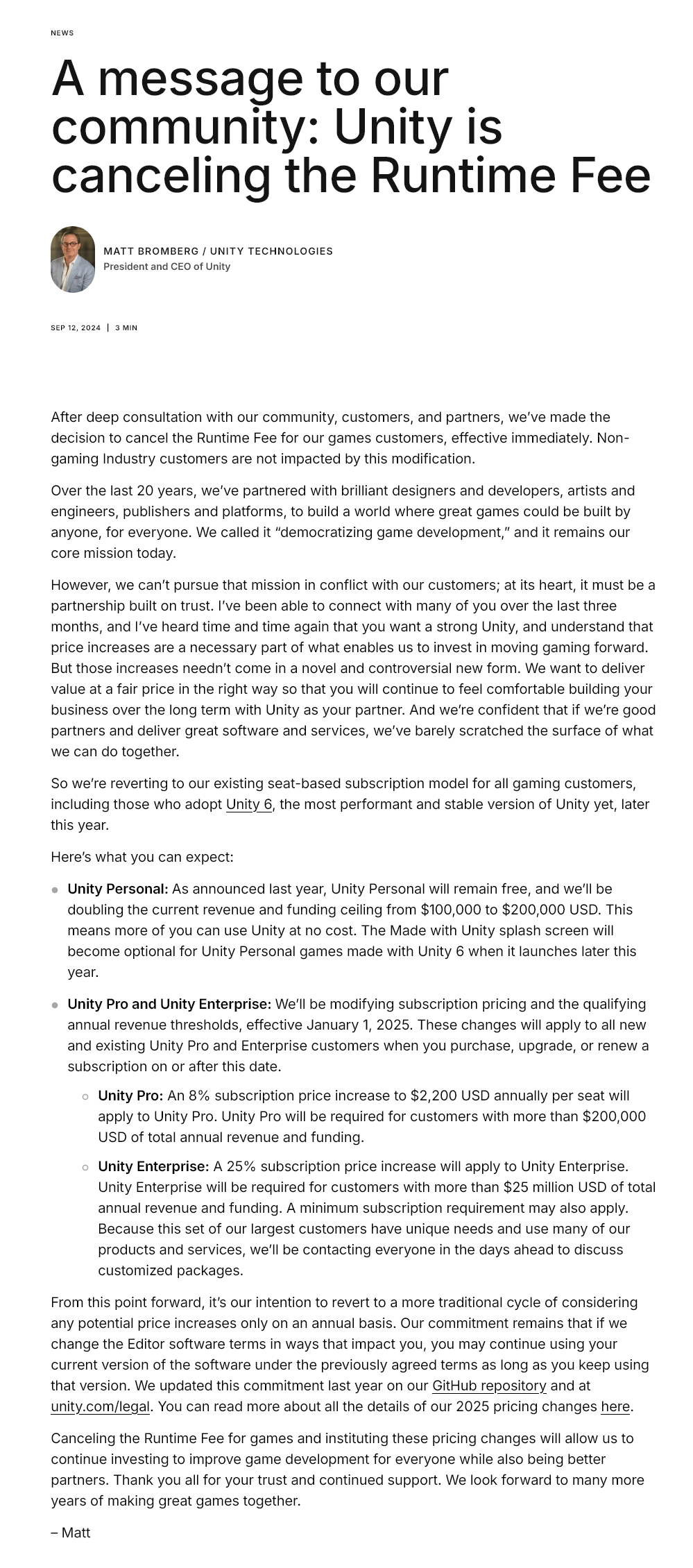
How to Fix Delayed Notifications on a Google Pixel Phone on Android 11, 12, 13, 14 Using ADB via USB (Tethered) or On the Device Itself (Untethered)
Relevant for Google Pixel models:
- Pixel 4, Pixel 4a, Pixel 4a 5G, Pixel 4 XL
- Pixel 5, Pixel 5a, Pixel 5a 5G
- Pixel 6, Pixel 6a, Pixel 6 Pro
- Pixel 7, Pixel 7a, Pixel 7 Pro
- Pixel 8, Pixel 8a, Pixel 8 Pro
- Pixel 9 and 10 series phones
- Many non-Pixel phones and tablets as well
Android versions:
- Android 11
- Android 12
- Android 13
- Android 14
- Android 15
- Android 16
Great Cameras, Buggy OS
One of the requirements for a new project of mine was a dedicated Android smartphone with some of the best cameras on the market. According to the latest tests, the Google Pixel smartphone lineup still leads the pack when it comes to reasonably priced camera phones. It also seems like there haven't been any noticeable improvements on the camera hardware in those since the release of the 6th generation of Pixels. So I picked up a shiny new Pixel 6a, created a new Gmail account and signed in.
All was going well until I realized that most, if not all email and instant messaging apps' notifications were delayed. Sometimes for a minute. Usually – for much longer.
At first I shrugged it off, thinking, "Well, what did I expect? It's an Android phone. You have to spend time fiddling with it to get it to behave as needed...". You know the drill.
Therefore, I made sure to try and fix this with the tools presented by the OS:
- Disabled Battery Saver and Adaptive Battery
- Lifted any background activity restrictions for Gmail and messaging apps
- Allowed those apps to have unrestricted access to the internet
- Updated both Android and the apps to the latest versions
![]()
Alas, even after completely powering down and restarting the phone, as recommended in some forums, nothing changed. Within about 5 minutes, the phone would still go into some sort of a deep sleep mode, which in turn would cause email and instant messaging notifications to be delayed again.
Really? Do I still have to switch into a "Power User" mode and jump through hoops to fix freaking notifications?
Guess some things never change…
Power Walking With Weights. A Comprehensive Look at How Weighted Power Walking Can Boost Fitness, Increase Strength, and Enhance Quality of Life
"Power walking is better than sex."
— Me
🎉 How Lucky For You!
You've just landed on a blog post where I'll introduce you to the absolute META of fitness exercises. The top of the heap. The cream of the crop. The safest, most efficient, life-changing workout you've never heard of.
Walking. With. Weights.
It's true what they say: "Life is really simple, but we insist on making it complicated".
Find out how the simple act of walking with hand weights can greatly benefit your physical and mental health (with video tutorials by yours truly!)
What IS Walking?
I bet you never considered walking something worth contemplating.
Walking is what humans evolved to do over the span of hundreds of thousands of years. It's the most optimized type of movement the human body can do. Walking, just as standing upright, are so important for survival, we can do them without any conscious thought: our brains actually developed separate areas, specialized at maintaining our sense of balance, Cerebellum being the prime example. That is how important walking is.
However, "unconscious" control over walking is mostly possible only when no extra load is present on the body. That's because the added weight usually noticeably changes the center of gravity of the combined system.

The good news is that the body and the brain are highly pliable and adaptable. If we keep walking with something moderately heavy regularly, over time we'll get more used to such movement, whereas letting go of the load would make previous weight-free movement easier.
So… If we walk all the time… What if we deliberately introduce challenge to this very activity with the goal of making ordinary walking effortless, and improve our fitness along the way?
That's the idea I'd like to share with you, along with the expected results and explanations, in the hopes that you'll find this activity as compelling and inspiring as I did.
3D Printers Are Awesome! Or — What Is a 3D Printer Actually Good For?
A couple days ago I was doing my kitchen chores and realized I was out of food (or sealing) clips.

And I needed those ASAP.
So the choice was to either:
- stop doing the important stuff (that being actually cleaning up and sorting the inventory) and go out looking for some sealing clips or…
- spend 10-15 minutes setting up a print job and 3D print some clips right at home!
The latter option was so much more convenient and fun, that I obviously went with it. And by the time I was done, the clips were done as well, and I made use of them straight away.

Afterwards I realized that this provided a great opportunity for a brief post on the topic of 3D printing and my experience with it. As well as another look at the age-old question: "What is a consumer 3D printer actually useful for?"
